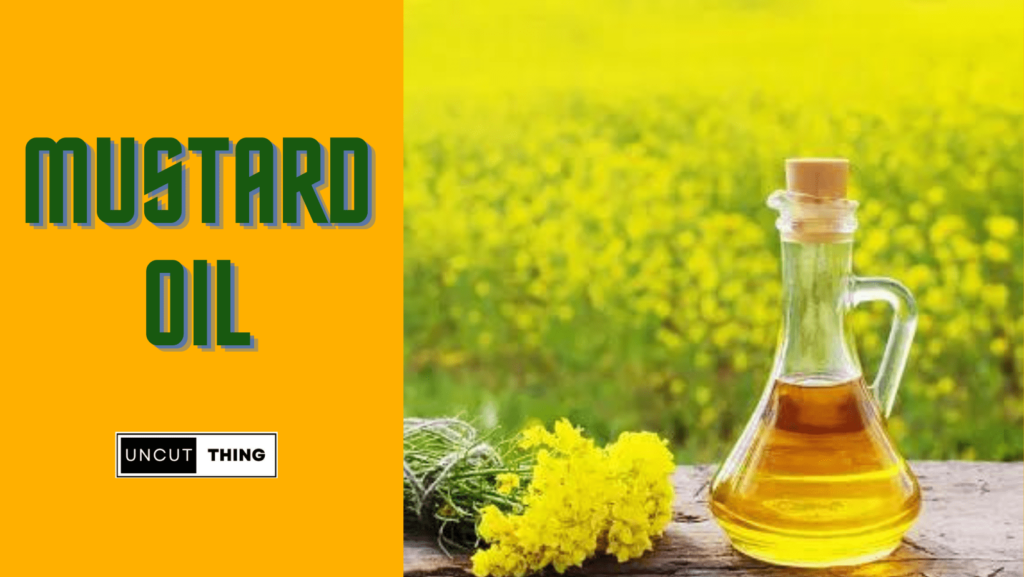When it comes to natural hair care remedies, mustard oil often tops the list. Known for its rich nutritional profile and a history steeped in traditional medicine, mustard oil is touted for numerous benefits. But is it truly effective for hair care? Let’s dive into the details and find out.

Table of Contents
History and Origin of Mustard Oil
Mustard oil has been a staple in Indian households for centuries, renowned not just for cooking but also for its medicinal properties. It originates from the seeds of the mustard plant, which is native to the Mediterranean region but is now widely cultivated in India, Bangladesh, and other parts of Asia.
Nutritional Composition of Mustard Oil
Mustard oil is packed with essential nutrients that contribute to its beneficial properties. It contains high levels of monounsaturated fatty acids, omega-3 fatty acids, and antioxidants. These components make it a powerhouse for both culinary and cosmetic uses, especially in hair care.
Is really Mustard Oil Good for Hair?
Promotes Hair Growth
One of the standout benefits of mustard oil is its ability to promote hair growth. This is primarily due to its rich content of vitamins and minerals that nourish the hair follicles and stimulate blood circulation in the scalp.
Prevents Dandruff
Mustard oil possesses strong antifungal properties, making it effective in combating dandruff. Regular application can help keep the scalp clean and free from flakes.
Conditions the Scalp
The moisturizing properties of mustard oil are ideal for conditioning the scalp. It helps in maintaining the natural oils of the scalp, preventing dryness and itchiness.
Adds Shine to Hair
Mustard oil can make your hair look glossy and vibrant. Its thick consistency forms a protective layer on the hair strands, locking in moisture and adding a natural shine.
How Mustard Oil Promotes Hair Growth
The nutrients in mustard oil, such as omega-3 fatty acids, zinc, and calcium, are crucial for hair health. They nourish the scalp, strengthen hair roots, and enhance hair elasticity. The increased blood circulation from massaging mustard oil into the scalp further boosts hair growth.
Mustard Oil for Dandruff Prevention
Mustard oil’s antifungal and antibacterial properties help in preventing dandruff. To use it for dandruff, warm the oil slightly and massage it into the scalp. Leave it on for at least 30 minutes before washing it off with a mild shampoo.
Conditioning Properties of Mustard Oil
Mustard oil is an excellent natural conditioner. Its emollient properties help in sealing moisture into the hair shaft, making hair softer and more manageable. Regular use can lead to a healthier scalp and hair.
Mustard Oil for Shiny Hair
To get shiny hair, apply mustard oil from the roots to the tips of your hair. Leave it on for a couple of hours or overnight for deeper conditioning. Wash it off thoroughly with a gentle shampoo to reveal shinier, smoother hair.
How to Use Mustard Oil for Hair Care

Direct Application
Apply mustard oil directly to your scalp and hair. Massage gently in circular motions to improve blood circulation and allow the oil to penetrate deeply.
Mixing with Other Ingredients
You can enhance the benefits of mustard oil by mixing it with other natural ingredients like coconut oil, olive oil, castor oil or essential oils. This combination can provide added nourishment and protection to your hair.
Potential Side Effects and Precautions
Is it true? Is Mustard Oil Good for Hair? While mustard oil is beneficial, it can cause skin sensitivity or allergic reactions in some individuals. Always do a patch test before using it extensively. If you experience any irritation, discontinue use immediately.
Choosing the Right Mustard Oil
Not all mustard oils are created equal. Look for cold-pressed mustard oil as it retains the most nutrients. Avoid oils with added chemicals or preservatives.
Scientific Studies and Evidence
Research supports many of the benefits of mustard oil. Studies have shown that it has antifungal properties effective against dandruff and other scalp conditions. Additionally, its nutrient-rich profile supports overall hair health.
DIY Mustard Oil Hair Masks
Simple Recipes
- Mustard Oil and Yogurt Mask
- 2 tablespoons of mustard oil
- 2 tablespoons of yogurt
- Mix well and apply to the scalp and hair. Leave it on for 45 minutes before washing it off.
- Mustard Oil and Aloe Vera Gel
- 2 tablespoons of mustard oil
- 2 tablespoons of aloe vera gel
- Combine and apply to the scalp and hair. Rinse after 30 minutes.
Common Myths about Mustard Oil for Hair
Debunking Misconceptions
- Myth: Mustard oil will make hair excessively greasy.
- Fact: When used in moderation and properly washed out, it will not make hair greasy.
- Myth: Mustard oil is too harsh for sensitive scalps.
- Fact: It can be used safely if diluted or mixed with other oils.
Conclusion
Mustard oil Good for Hair and is a versatile and potent natural remedy for hair care. From promoting hair growth to preventing dandruff and adding shine, its benefits are numerous. Incorporate it into your hair care routine for healthier, more vibrant hair.
FAQs
Can mustard oil be used on all hair types?
Yes, mustard oil is suitable for all hair types, but it should be used in moderation, especially for oily hair.
How often should I use mustard oil on my hair?
You can use mustard oil 1-2 times a week for best results.
Can mustard oil make hair greasy?
If used excessively or not washed out properly, it can make hair greasy. Use an appropriate amount and ensure thorough rinsing.
Is mustard oil good for hair/safe for coloured or treated hair?
Yes, but always perform a patch test first to ensure there is no adverse reaction.
Are there any alternatives to mustard oil for hair care?
Yes, alternatives include coconut oil, olive oil, and argan oil, all of which also offer numerous benefits for hair care.
